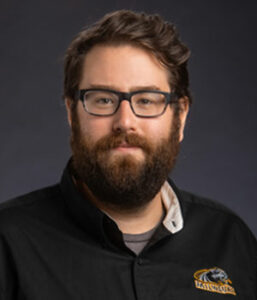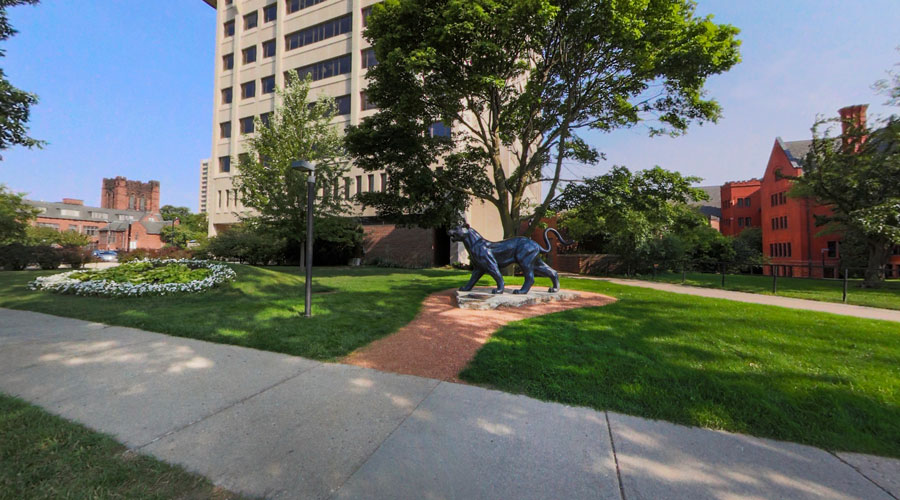Social Work MSW
The master’s degree in social work prepares students for careers as advanced social work practitioners who can promote positive change through social work practice, advocacy, education, research and leadership.
UWM also offers an online Social Work MSW.
Program Type
Master’s
Program Format
On Campus
The MSW advanced curriculum maximizes student choice and flexibility. Social work master’s students choose which populations and practice skills to emphasize in preparation for contemporary advanced social work practice.
The curriculum core includes courses related to social work practice with individuals, families, groups, organizations and communities. Within the curriculum core, students also obtain knowledge and skills in the areas of social welfare policy, social justice and evaluation.
Beyond the curriculum core, students choose electives from areas that include:
- Behavioral and mental health
- Child and family well-being
- Clinical social work
- Gerontology
- Physical health
- School social work
- Substance abuse counseling
- Trauma-informed care
Coordinated Programs
- Social Work MSW and Criminal Justice & Criminology MS
- Social Work MSW and Women’s and Gender Studies MA
- Social Work MSW and Public Health MPH
- Social Work MSW/PhD
Graduate Certificates
Wisconsin Certification and Licensure
- School Social Work
We are one of the only graduate schools in Wisconsin to offer an approved Department of Public Instruction (DPI) school social work program. - Substance Abuse Counselor Certification
Our MSW curriculum in Behavioral and Mental Health combined with specialized electives is approved by the Wisconsin Department of Safety and Professional Services (DSPS) to satisfy the educational requirements toward certification as a substance abuse counselor.
Leaders in Trauma-Informed Care
Our faculty and staff are leaders in trauma-informed care practice and research. We have offered the Graduate Certificate in Trauma-Informed Care since 2013.
YOSAT Counseling II is a new offering within the MSW program at UWM that exposes students to specialized training in both substance abuse and trauma counseling with a focus on vulnerable children, youth and young adults. The program also includes state-of-the-art training in cultural competency, technology integration and integrated care. Students accepted to the YOSAT Counseling II program receive fellowship financial support.
Leaders in Applied Gerontology
The Graduate Certificate in Applied Gerontology (GCAG) is designed to provide students with the knowledge and skills needed to successfully pursue or advance careers within aging services organizations or conduct academic research in aging. The program focuses on the biological, psychological, social, policy and ethical aspects of aging.
We will begin accepting applications for Fall 2024 on October 1. The application is an automated process through the UW-Milwaukee Graduate School.
The deadline to apply will be April 15, 2024.
Prospective applicants can find information about the required references, narrative statement and resume at the links below.
- Reference Instructions for MSW Application
- Resume and Narrative Statement Instructions for MSW Application
Attend an online information session to learn more.
Admission Requirements
- Admission to the MSW program is limited and competitive. Factors considered in evaluating applicants are academic preparation and achievement, personal qualifications and maturity, volunteer and employment experience, and potential and aptitude for both graduate study and professional practice in social work.
- A graduate entrance exam such as the GRE or MAT is not required for admission. An advanced standing track is available for students coming to the MSW program who have earned a BSW within the past seven years.
- We admit applicants only for the fall semester. Applications open each year on October 1. The deadline to apply is April 15.
Minimum Requirements
- An undergraduate cumulative grade point average of 2.75 or better (including undergraduate course work from all colleges attended and each attempt of any repeated courses).
- Satisfactory completion of at least 21 semester credits in social and behavior science areas such as psychology, sociology, political science, economics, anthropology or their equivalent.
MSW Advanced Standing Curriculum
If your BSW degree was earned from an accredited BSW program within seven years of starting the MSW program, then you automatically begin in the advanced standing portion of the MSW curriculum and will have 34 credits to complete the MSW degree. These 34 credits include four core courses taken by all MSW students (12 credits), 13 credits of electives, and three consecutive semesters that will involve field placement (9 credits).
MSW Professional Foundation Curriculum
If your bachelor’s degree is in a discipline other than social work or if your BSW was earned more than seven years prior to your start of the MSW program, then you are required to satisfy the MSW Professional Foundation curriculum (22 credits) prior to beginning the advanced curriculum.
Educational Requirements for Wisconsin Credentials
School Social Work
The Helen Bader School of Social Welfare is one of the only schools in Wisconsin to offer an approved Department of Public Instruction (DPI) school social work program. The DPI requires a license to provide social work services in Wisconsin public schools, and our program includes verifying your material and transmitting your application to DPI.
Substance Abuse
Among our MSW options, the behavioral health concentration is for students interested in substance abuse counselor certification. The Wisconsin Department of Safety and Professional Services approved this MSW advanced-standing curriculum as satisfying the pre-certification educational requirements for substance abuse counselors. (Please note that the DSPS grants substance abuse counselor certification — not the Helen Bader School of Social Welfare.)
MSW Program Mission and Goals
The mission of the UWM social work master’s program is to prepare advanced social work practitioners who can promote positive change through social work practice, advocacy, education, research and leadership. This is accomplished through the MSW curriculum being anchored in core courses for all MSW students that build knowledge and skills in crucial advanced social work competencies related to social work practice with individuals, families, groups, organizations and communities, as well as knowledge and skills in the areas of social welfare policy, social justice, and evaluation of practice and programs.
The values of this curriculum align with the goals of the UWM Social Work Department to prepare:
- Highly skilled, advanced practitioners to work in a variety of ecological levels, including with individuals, families, groups, organizations, communities and governments
- Ethical practitioners guided by the principles and values of the social work profession, including dignity and worth of the person, and importance of human relationships
- Culturally competent social workers who promote and advocate for social justice and human rights
- Social workers who engage in critical thinking and actively apply research evidence to practice, policy, advocacy, education and leadership
- Social workers who conduct practice and program evaluation to advance knowledge and practice
- Competent advanced generalist practitioners who may additionally become prepared to develop specialized practice skills through various elective pathways, field placement training and certificate and certification programs
- Social workers who address human service needs in the state of Wisconsin and the region


